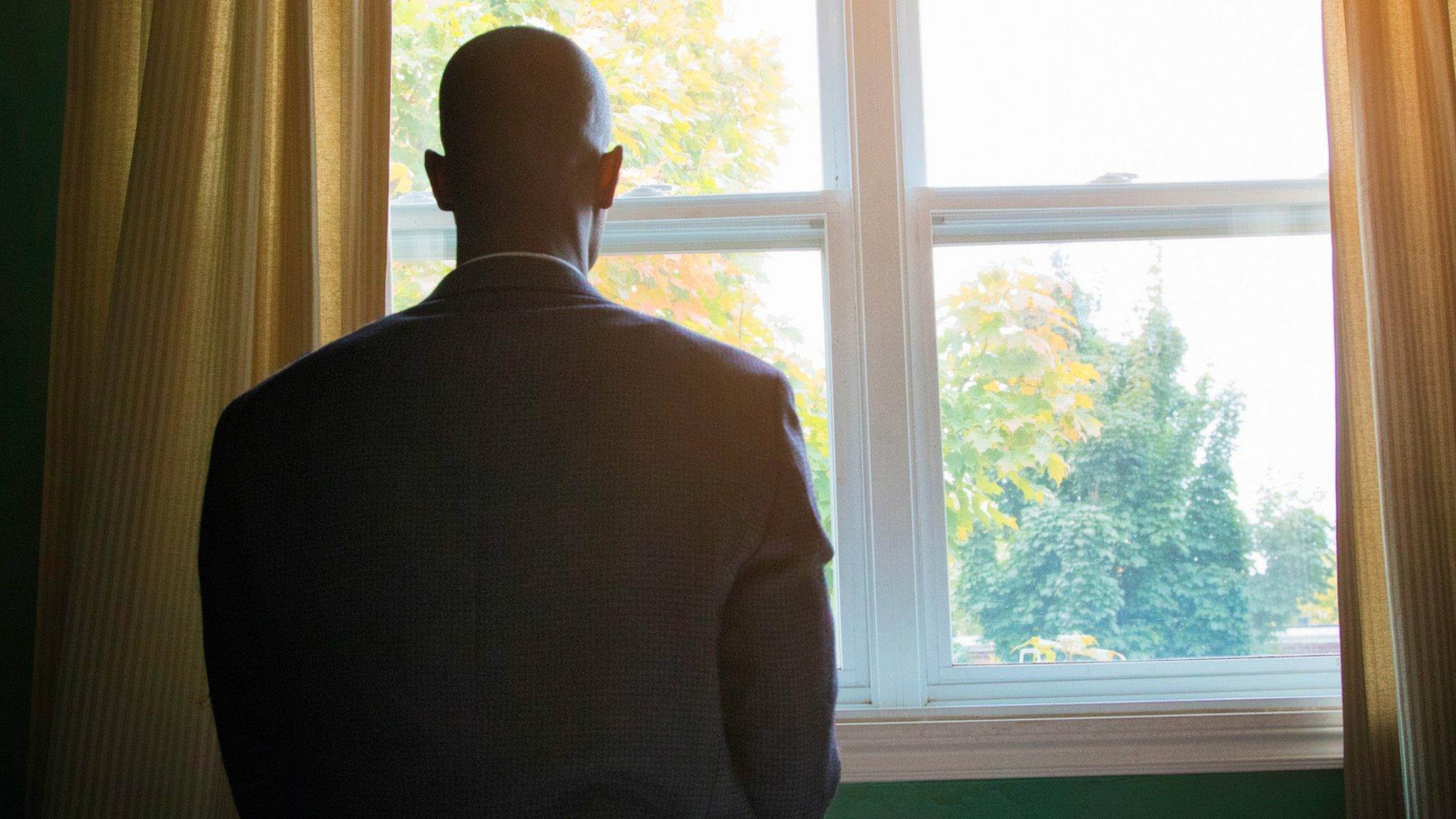Covid: Surge in calls to Bristol suicide prevention charity
- Published
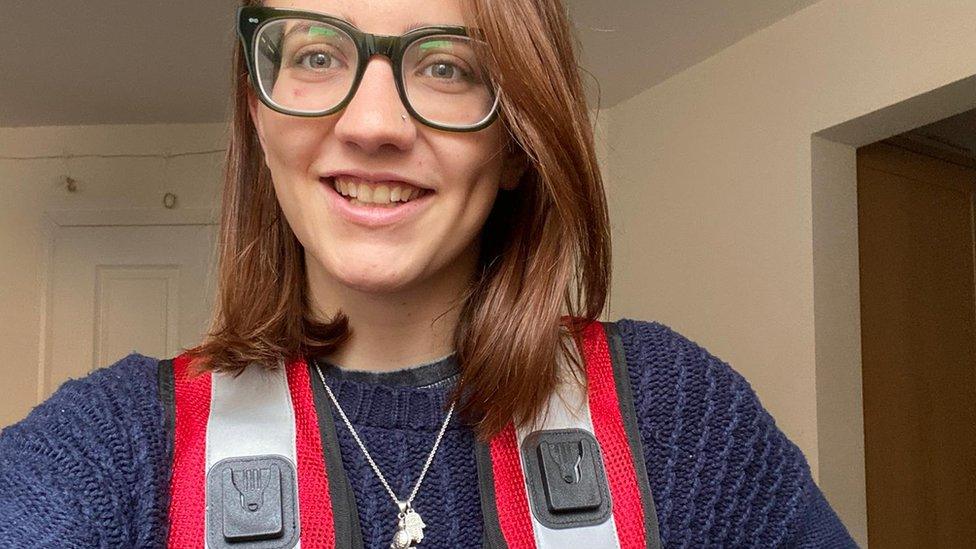
Amelia Orchard-Smith said her personal experience of twice attempting to end her own life is what drives her passion for helping others
A mental health charity has seen a 300% increase in calls to its helpline since the start of the coronavirus pandemic. Volunteers from Suicide Prevention Bristol are out in force patrolling the streets of the city to help people contemplating ending their lives.
"It does happen where we are literally holding on to people on the edge," Amelia Orchard-Smith explains.
She dedicates her weekends looking out for people who are at risk of suicide.
The 25-year-old has been there herself - her personal experience of attempting to end her own life at the ages of 17 and 19 is what drives her passion for helping others.
She is proof there is hope to overcome even the darkest moments, she says.
"When I attempted to take my own life, on both occasions I walked away and regretted my actions, so I do feel that people can get through these feelings if someone reaches out to them in the moment.
"You can get through that hour or day. I want people to know that because I have been there," she says.
For information and support on mental health and suicide, access the BBC Action Line.
By day, Amelia works a nine-to-five job as an inclusion and wellbeing officer for a financial services company, but from 21:00 to 03:00 GMT she spends most Friday, Saturday and Sundays walking the streets of Bristol finding people who are at risk of ending their lives - and talking to them about how life is worth living.
The charity's team of volunteers patrol the city throughout the week and at weekends in teams of three or four, and go out in branded cars and uniforms. They approach people, speak to them and offer help.
Friendly face
In many cases just being a friendly face to talk to convinces people to seek support.
And now, thanks to lockdown and people being furloughed, even more help is at hand.
The charity recently advertised for 12 new volunteers to keep up with demand and received more than 100 applicants.
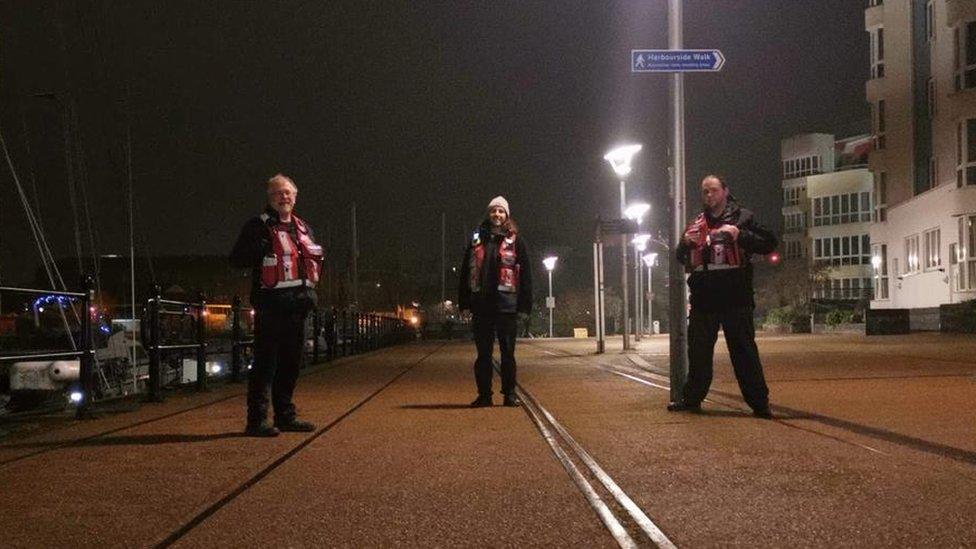
Volunteers patrol the streets of Bristol spotting vulnerable people who may be at risk of harming themselves
So, how do they know when they are out on patrol, what someone in need of help looks like?
All volunteers undergo specialist training, funded by donations to the charity.
"If you know what you're looking for you can find people who are at risk," Amelia continues.
"We spot people who are on their own and look vulnerable. Some people are happy to be approached and some don't want to engage.
"We first establish whether there is an immediate risk of danger, assess whether they have taken an overdose or have self-harmed and whether we might need to call the emergency services.
"We chat to them, usually they want to talk to someone and will open up quite quickly.
"We build up a relationship with people we see regularly and are not receiving the help they need.
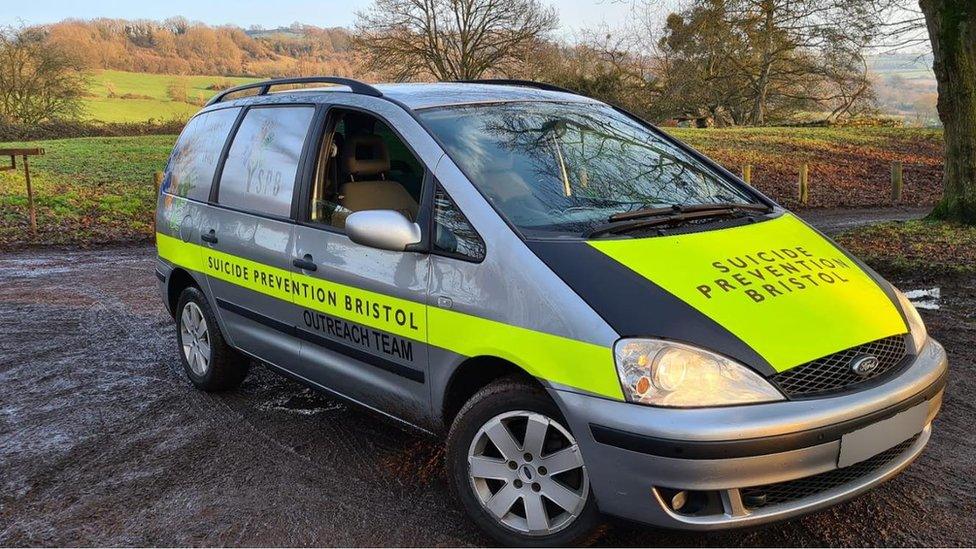
Branded cars from the charity can be seen across the city
"After a while we will signpost them to organisations that can help and we come up with a plan together; that they are not going to end their life and that there are avenues that they can feel hopeful about."
In Bristol, on average, there are 47 suicide deaths per year, 28% higher than the national average, according to 2018 Bristol City Council statistics. , external
Suicide Prevention Bristol was set up in 2018 by 27-year-old Michael Everett after his personal experience with mental health.
The charity says the number of people needing help has increased since the start of the pandemic.
Last year it had a 300% rise in calls to their 24-hour helpline as a result of coronavirus affecting people's mental health.
'Incredible response'
Amelia says although the pandemic has had a clear impact on people's mental health, it has also inspired people to volunteer for the charity.
"The last year has seen a surge in the number of people contacting us and the number of people we have contact with on patrols," she says.
"We have 30 people who man the phone lines 24 hours a day seven days a week but there are times when calls can't get through because we don't have enough people.
"But we've had an incredible response to our appeals, from people who have always wanted to volunteer but they haven't had the time and are now furloughed or in lockdown so have the time."
Amelia says her fellow volunteers have been a huge support when dealing with difficult cases.
"We are such a close team and we experience so much together," she says.
"It's important to put boundaries on yourself to protect your own wellbeing."
The charity's helpline can be reached on 0800 689 5652.
Related topics
- Published21 October 2020
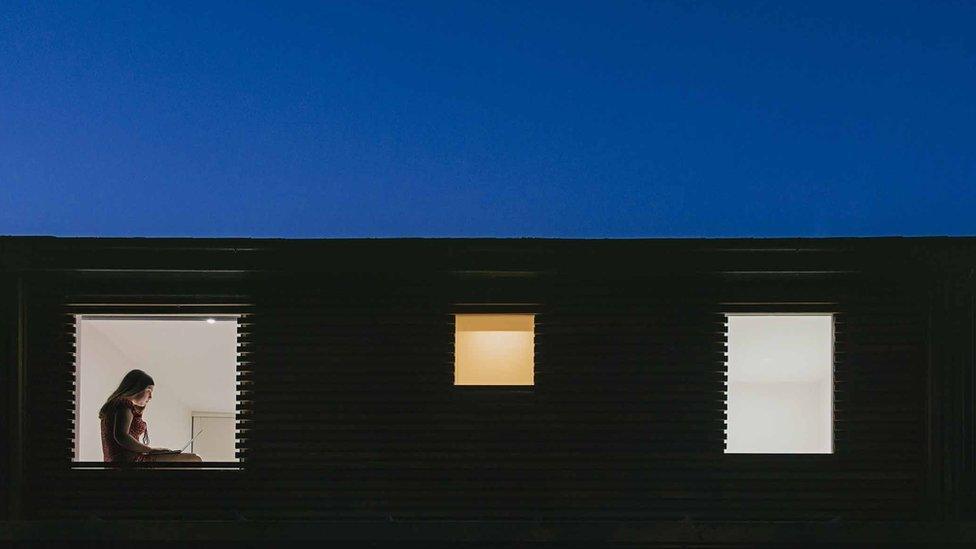
- Published10 October 2020
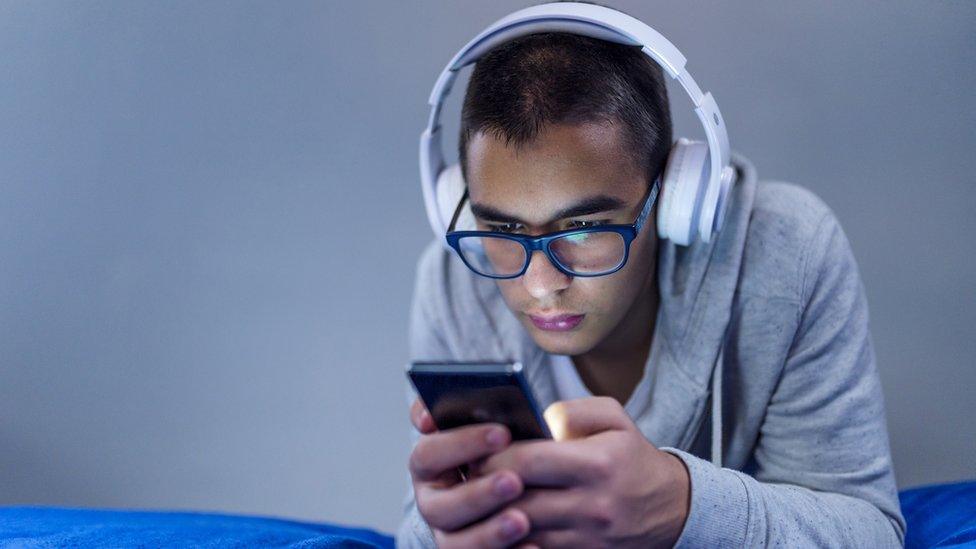
- Published19 July 2020
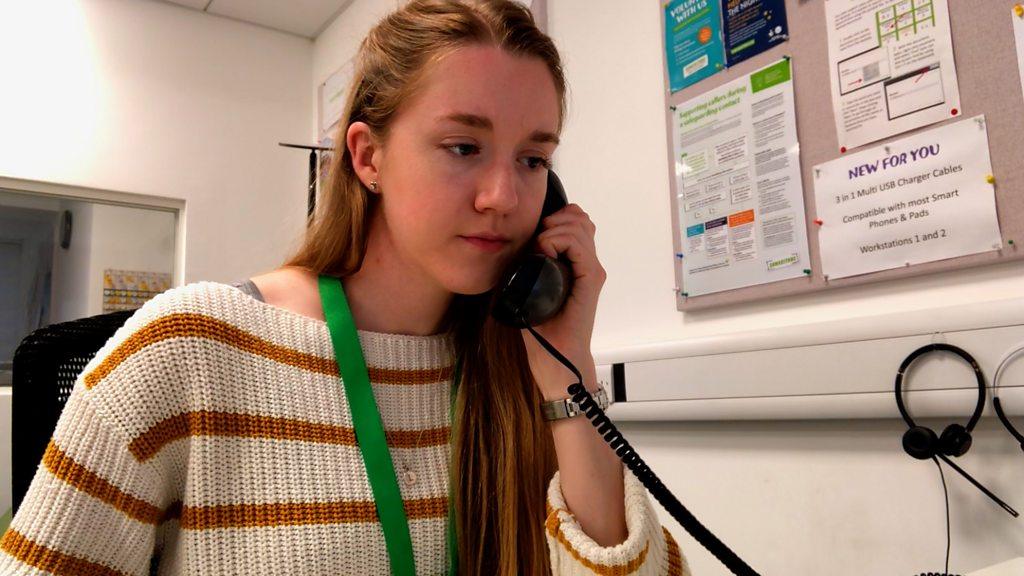
- Published18 May 2020
